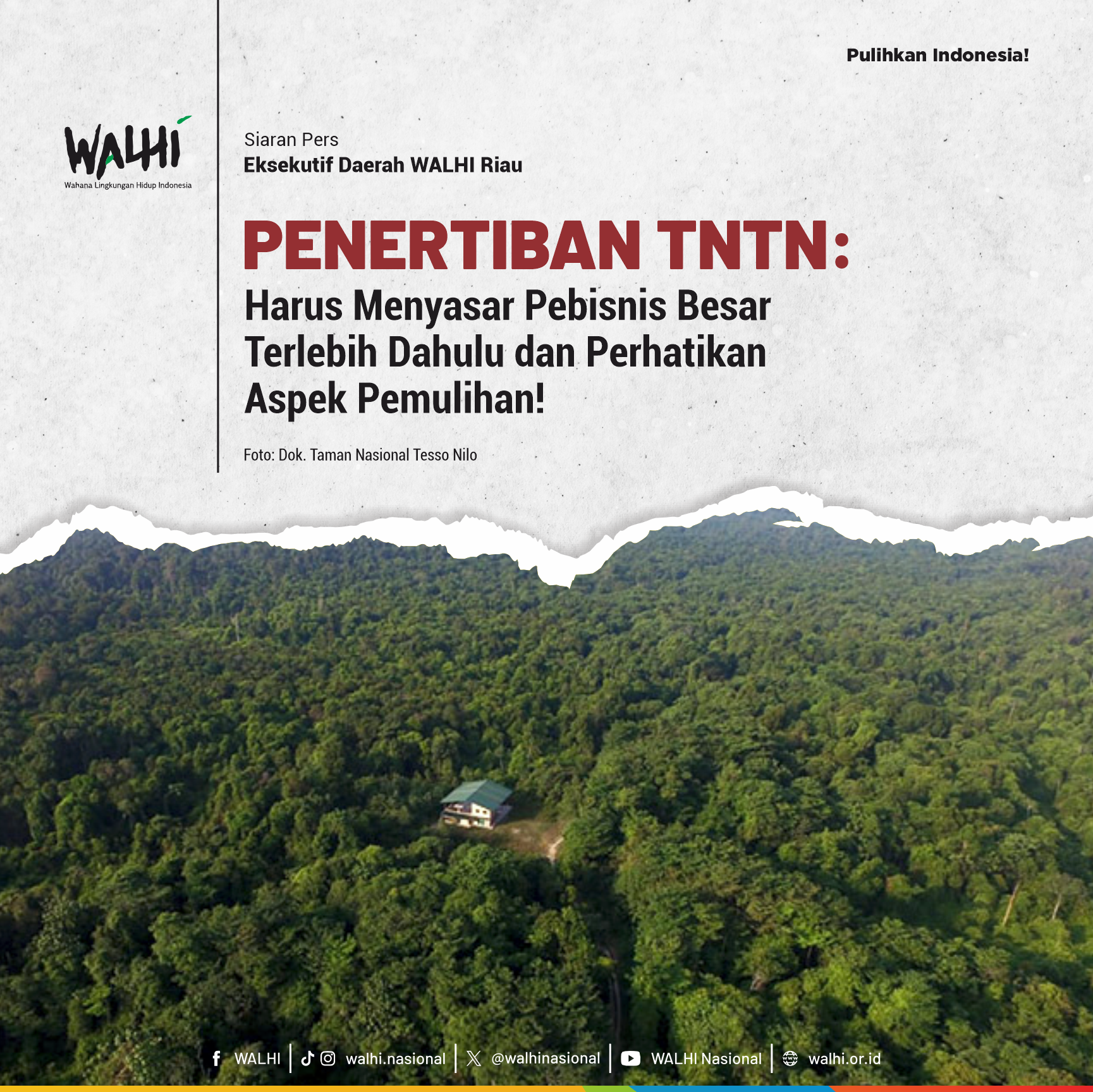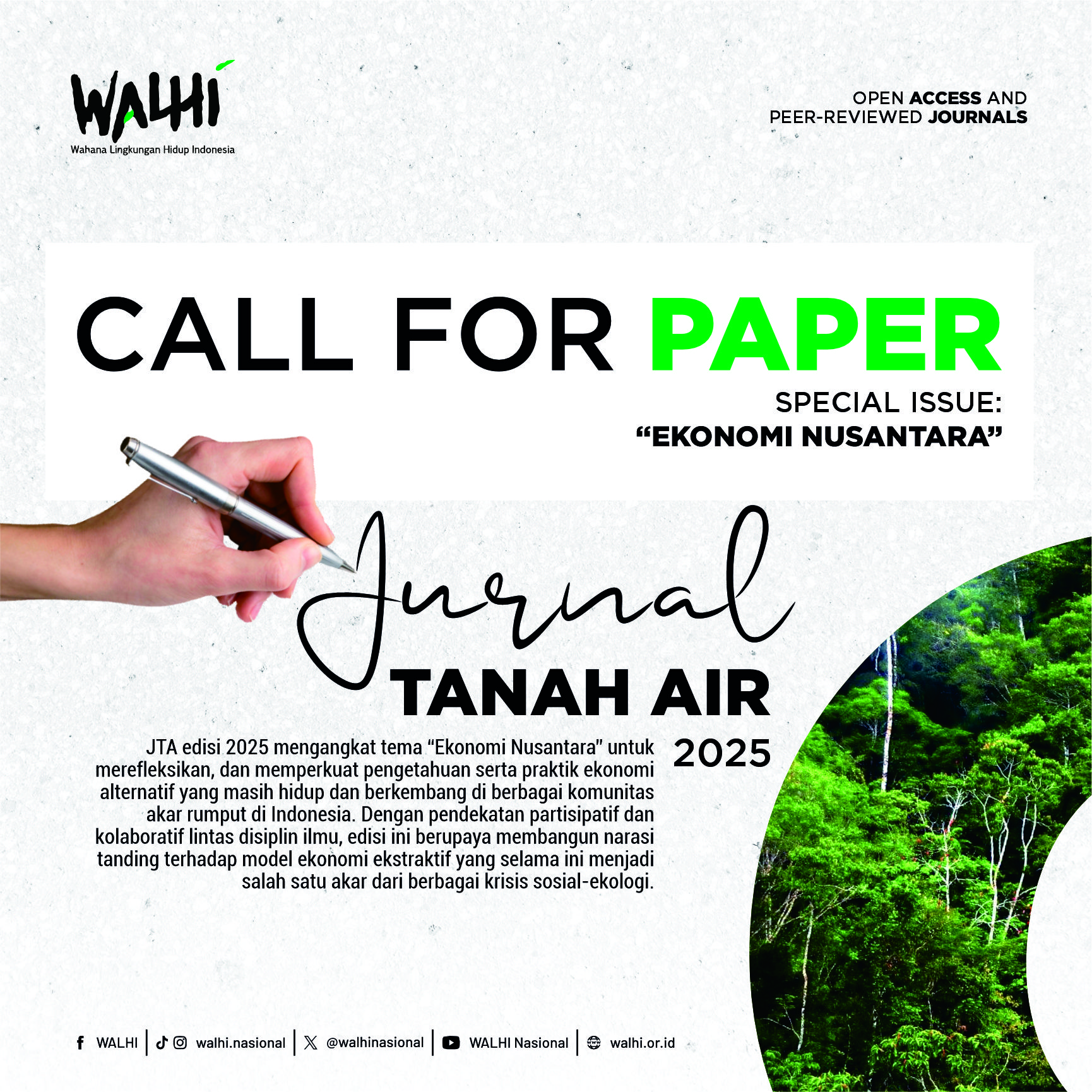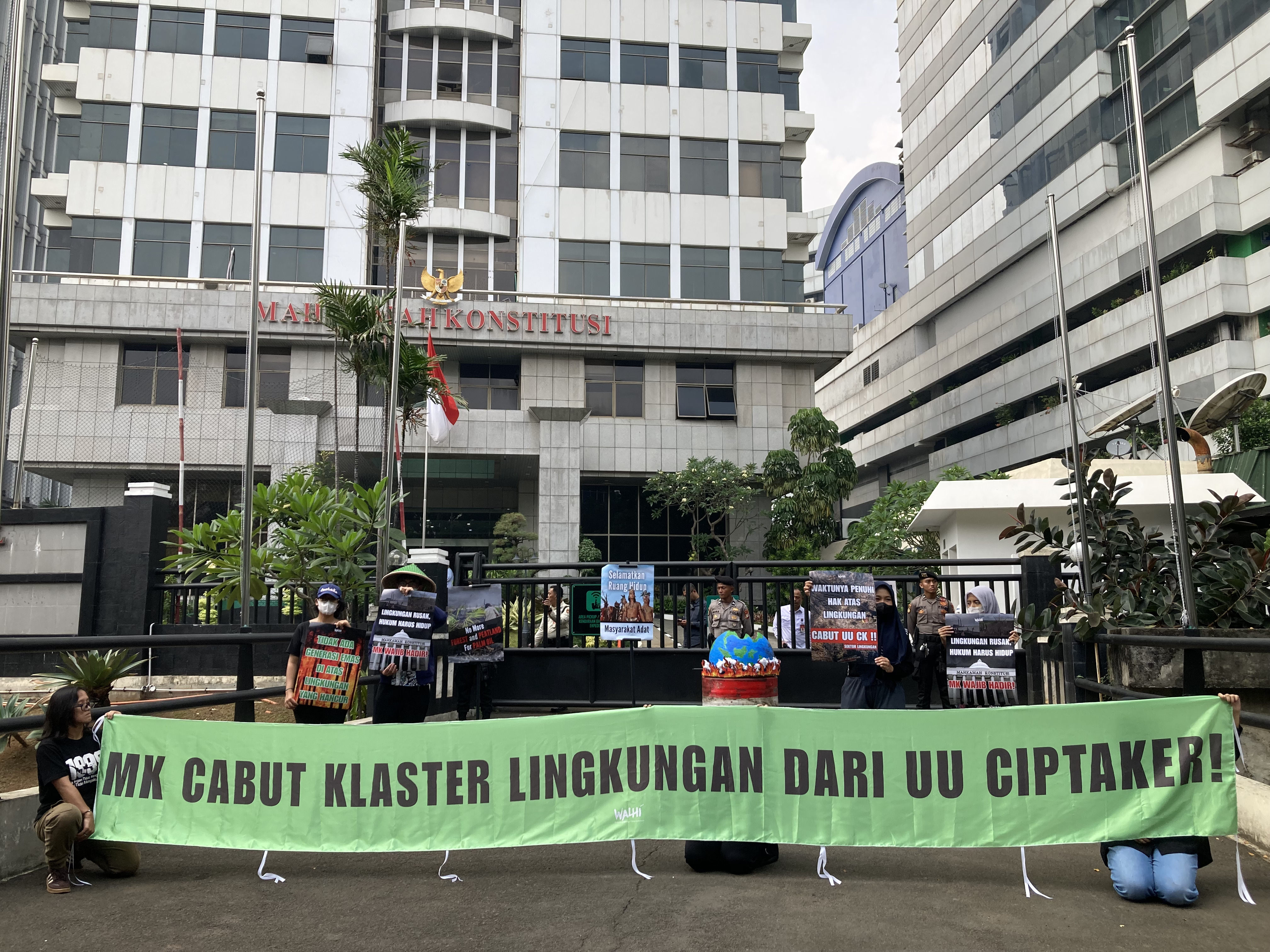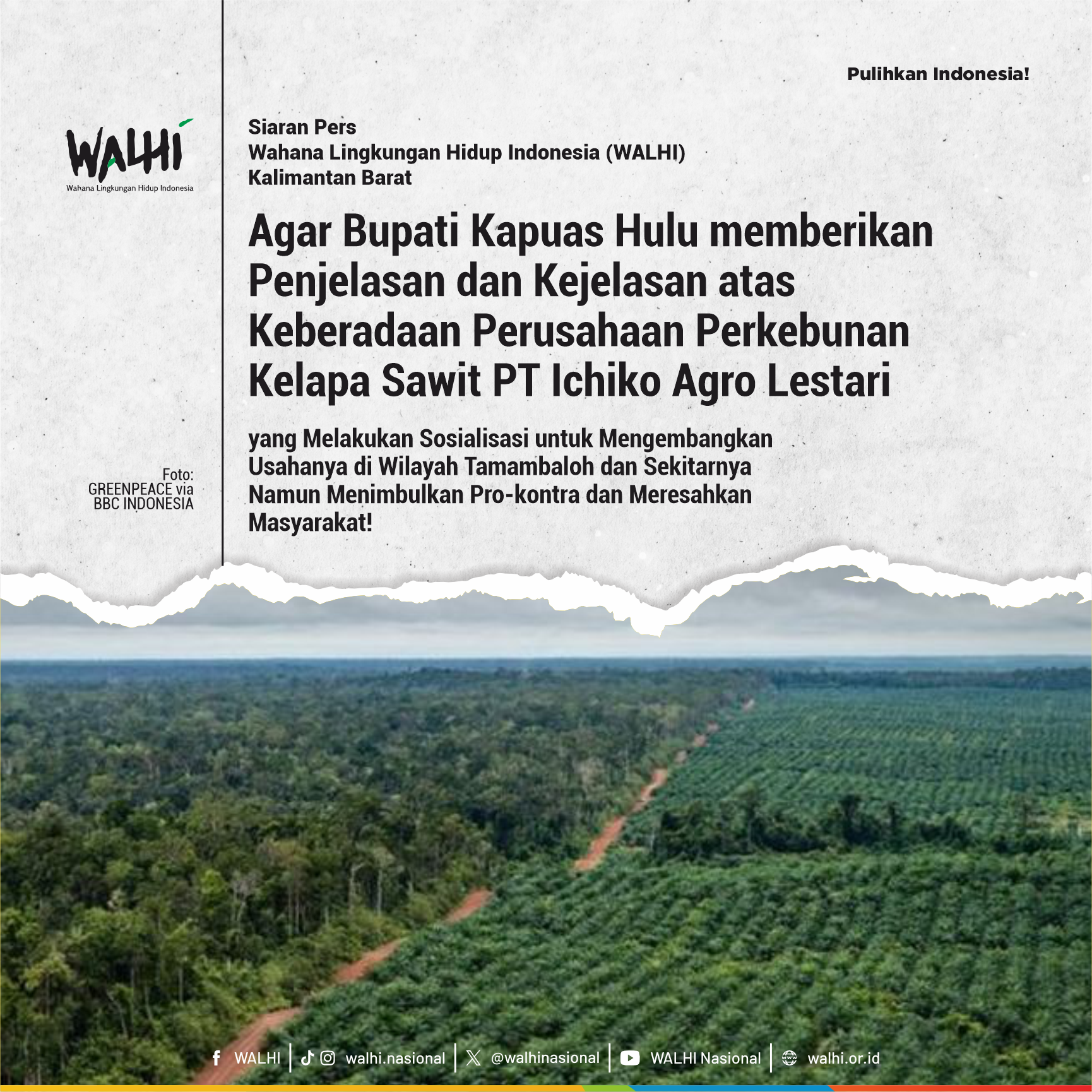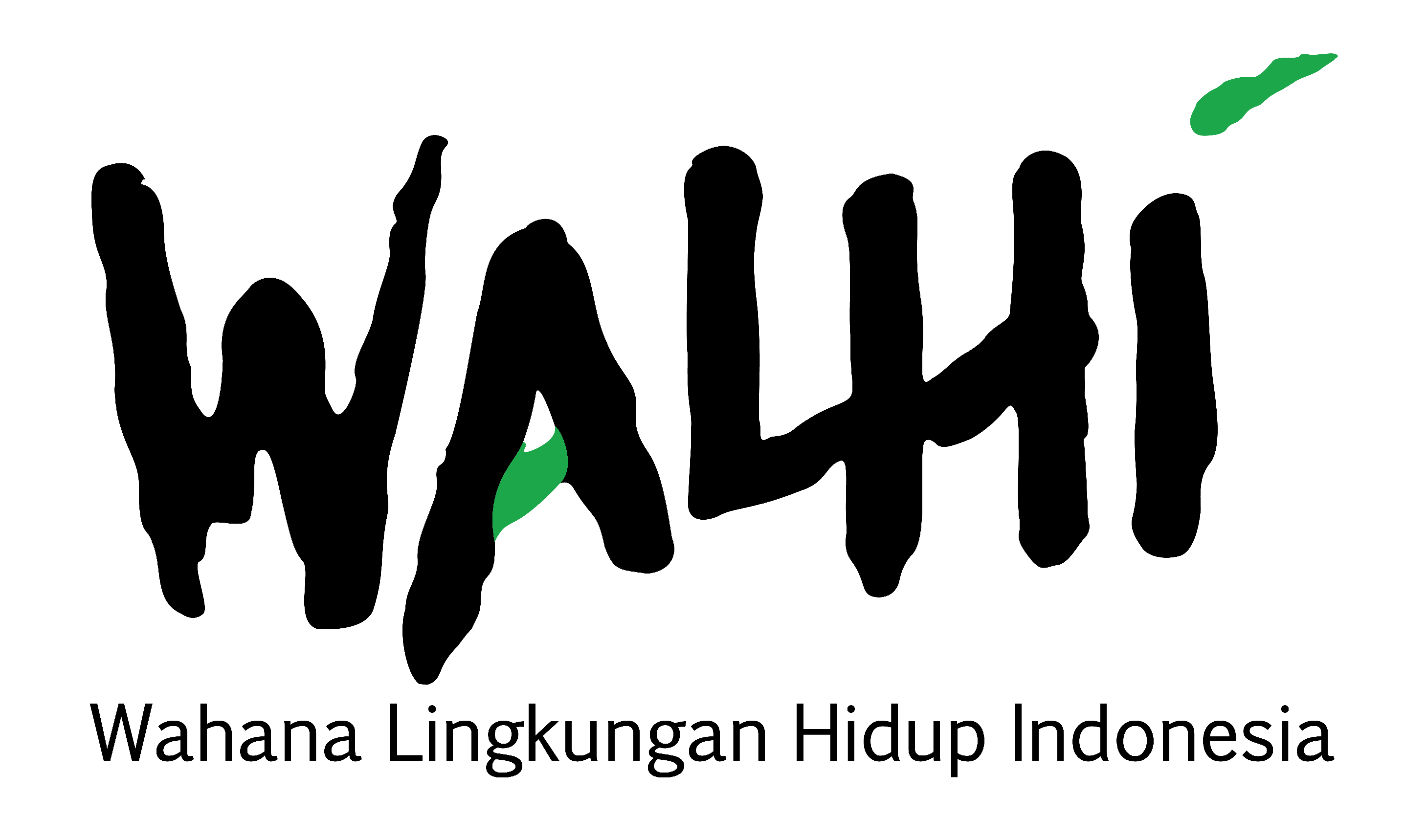As a country that rich with natural resources, welfare and justice should be felt by all Indonesian people. Unfortunately, we are witnessing various problems experienced by the people, especially from the marginal groups who actually become victims in the name of "development" and economic growth. The seizure of indigenous lands, poverty, tenure conflicts, ecological disasters becomes an indisputable fact. From the vast narrative of the opaque practice of development and economic policy of this nation, there is another narrative that often escapes. There are groups of women who experience layers of violent from exploitative natural resource practices, such as mining, oil palm plantations, industrial plantations and large-scale infrastructure development, destroying women's livelihoods. On the other side, we are also witnessed from various places in Indonesia, women are at the forefront in fighting for the rights of environment and its fiefdoms. The role of women is enormous in the management of natural resources. However, women's knowledge and experience are often considered non-existent, so they are always ignored in policy-making. Women also have very high ties to nature, beside women's vulnerability when environmental damage occurs.
On August and September 2017, WALHI Papua and WALHI South Sulawesi initiated educational activities to strengthen and expand women's struggle for natural resources and environment. They learned and found together the underlying problems faced by women and at the same time exploring the resolution of the conflict. In Papua, this activity was attended by indigenous Papuan women from Keerom District, Arso District 3 People City and East Arso District, Jayapura City, Abepura District of Enggros Tobati Village, and Jayapura District of Kemtuk District and Waibu District. These areas are threatened by palm investment from PTPN 2 and PT. Rajawali, cement investment by PT. SI and large scale sugar cane and corn plantations owned by corporations. In South Sulawesi, female warriors from Takalar are fighting a sea sands mine, Enrekang is in conflict about claims of protected forest area, Maros which saving karst area, and Gowa which facing a forestry conflict. They gathered for 4 days in Makassar to share knowledge and experience in fighting for the resources of their life. Besides discussing gender in natural resources management, this education also explores the agrarian problems, advocacy and policies that threaten the people's management area. This activity is expected to become a medium of mutual learning among womens who are currently fighting for forests, customary land, water, clean air and healthy future generations, as well as strengthening solidarity amongst women's communities.

